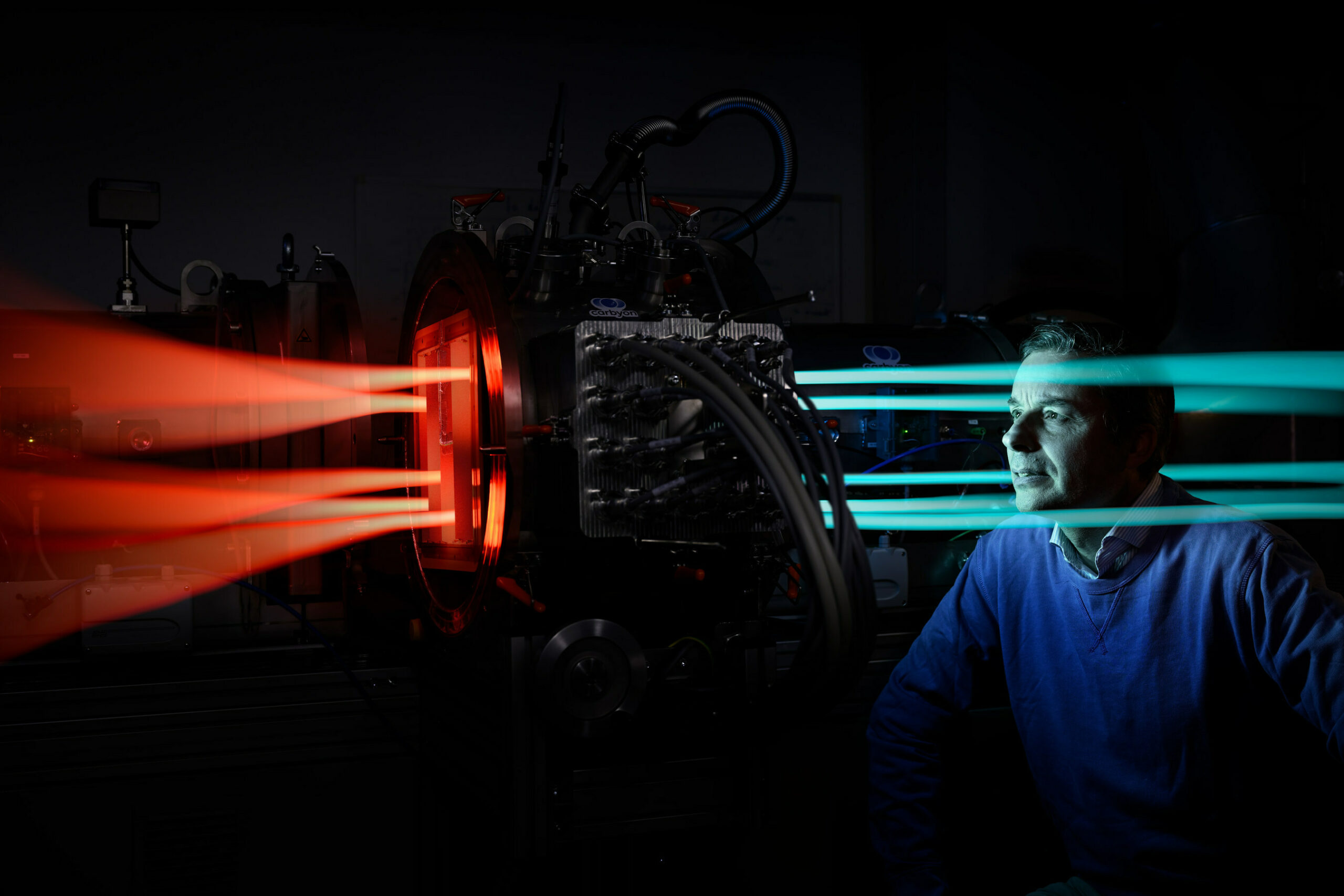Header: Bart van Overbeeke Photography
Dutch Direct Air Capture (DAC) company Carbyon has successfully proven that their unique fast-swing process can capture CO2 using less than 2,500 kWh/ton. Carbyon was the world’s first to drastically reduce the CAPEX costs of DAC equipment using its fast-swing process. The company has now found the missing piece to also sufficiently lower energy consumption, making this breakthrough a giant leap towards a cost-effective DAC technology below $100/ton.
In its pursuit of a low-cost DAC solution, Carbyon invented an ultra-fast CO2-capturing material. Where conventional materials need hours to capture CO2 from the air, Carbyon’s can do the same in only a few minutes. In this way, each kilogram of their material captures up to 5 tons of CO2 annually. This allows for compact DAC machine design, resulting in a CAPEX cost below $50/ton.
Initially, the fast-swing process suffered from collateral water adsorption, introducing an energy penalty. The recent breakthrough discovery massively reduces water uptake, resulting in an energy demand below 2,500 kWh/ton, while preserving their CAPEX benefits. Carbyon is the first Direct Air Capture company to merge low CAPEX with low energy demand, thanks to its unique fast-swing process.
“Demonstrating 2.500 kWh/ton with an all-electric, low-CAPEX technology puts Carbyon in pole position to reach the $100/ton target the market is looking for. Nothing can stop us now!”
Hans De Neve, founder and CEO of Carbyon
In light of COP28 in Dubai, breakthroughs like these show that Direct Air Capture is becoming a mature solution that can help to meet our climate targets. To limit global warming to 2°C, the IPCC scenarios show that besides the necessary emission reductions, vast amounts of CO2 need to be removed from the atmosphere. Direct Air Capture is marked as one of the important technologies that can enable fast and durable CO2 removal.
Carbyon’s breakthrough led to a fundamental understanding of working principles empowering them in their mission to even further reduce the technology’s energy demand. The company is rapidly growing and is currently developing its first engineering-scale machine, which will be validated in the field with pilot partners. So far, the company has raised $10M and is currently raising a Series A round to finance upcoming activities.








